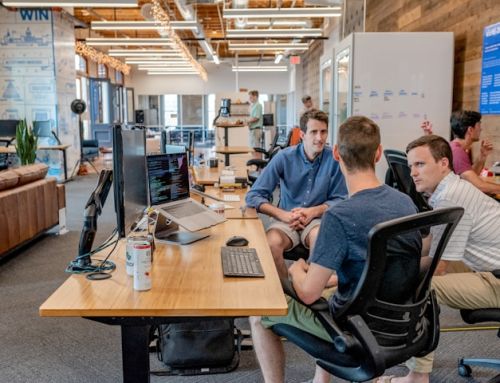Covid 19 has changed the way we work. This unprecedented health and financial crisis has raised questions about working from home, using new technologies, and relationships with collaborators. Not only were we forced to take strict health measures, but experts said they were to be phased in over the next five years.
The bold intervention of information and communication technology in almost every aspect of our lives has completely changed the business management paradigm. And the field of talent is no exception.
As a result, new HR developments and trends do not stop there and strive to be realized in 2021.
Faced with unprecedented turmoil from the Covid19 crisis, which profoundly impacted the business world, organizations have created radically new tasks and methods of operation. Leaders are now at the forefront of imagining and predicting the future of work and potential by prioritizing human capital issues. Of course, we are observing a paradigm shift. Leaders are no longer content to devise strategies to deal with observable trends but instead seek to continually adapt to chaos by developing a human-focused approach.
HR Trends 2021 “Social Enterprise in a Disrupted World” explores how organizations and leaders can learn from crises, rethink their work deeply, and transition from survival mode to growth models.
Check over here to know more about Human Resources Management (HRM). As follow we are describe main top trends for human resources (HR)
Rethinking Well-being At Work
Covid19 crisis reminded us of the importance of employee well-being and the need to integrate it into our daily work. In reality, the problem blurs the line between work and personal life. Still, the organization has had to solve the problem more strongly in the physical and mental health of the team. Therefore, the issue of survival, health and wellness, has become an inseparable relationship.
Therefore, it is no longer a matter of prioritizing work-life balance that appears at the top of the strategic plan. Still, more generally, it is essential to make it a component of the inability to separate health. Managers implemented policies to help employees manage their work and personal lives during the Corona 19 crisis. And seven out of ten executives say the move to telecommuting had a positive impact on happiness.
But looking to the future, leaders are the last to adopt health improvement in the priority of business innovation. When employees are in the top three! This figure underscores the issue of sustainable integration of health in the workplace in the post-crisis world.
But a company that integrates happiness into business organizations at the individual, group, and organizational levels is to build a sustainable future in which employees feel better and work better.
Skills: Employees Involved In Their Development
The Covid19 crisis has made clear the strong resilience of our employees. Employees have been able to broaden their fields of activity, change career paths and adapt to situations where they have to deal with more significant disruption in the future. One of the most essential elements of an organization is to articulate the potential of its employees through new approaches to technology. Managers identify “the ability of employees to adapt, retrain, and assume new roles and responsibilities” as a priority for enabling them to navigate in an ever-changing environment.
However, these leaders believe their organization is ready to support their employees in this direction. This shows a particular discrepancy between the leader’s priorities and reality. However, nurturing employees allows for greater organizational resilience. What approach should I take ? Empowering employees by giving them space to make decisions and organize more freely creates more value than other more prescriptive approaches. Of course, the best way to unlock your employees’ full potential is to ask them how they can contribute to the building and explore their favourite areas for them.
Dedicated-Teams: Where The Work Is Done
During the Covid19 crisis, organizations were relying heavily on collective and teamwork to achieve adaptability and responsiveness. Managers have the opportunity to leverage this learning to form dedicated teams that integrate humans and AI (artificial intelligence). This allows teams to learn, write, and execute in different ways.
By amplifying the ability of dedicated teams to achieve new, better outcomes, these super teams can play a vital role in an organization’s ability to rethink things more humanely, gaining resilience and agility. As part of the investigation, the executives who questioned it passed this milestone, calling for optimizing things and rediscovering them. Executives surveyed said they were prepared to focus on rediscovering the work of the 29 pre-pandemic. This requires using technology differently. This means you need to thoroughly reinvent your career rather than replace or supplement it.
Talent Management Strategies: Opening Up New Perspectives
Better understanding the needs of their employees has become a crucial necessity for organizations. Most companies cannot use traditional levers such as remuneration to maintain the motivation of their employees. As such, they must identify new means to attract, mobilize and retain talent.
Data is an essential lever in organizational transformation; to achieve this is necessary to adopt a talent management strategy that is more dynamic and based on real-time data.
Image by Steve Buissinne from Pixabay





Leave A Comment